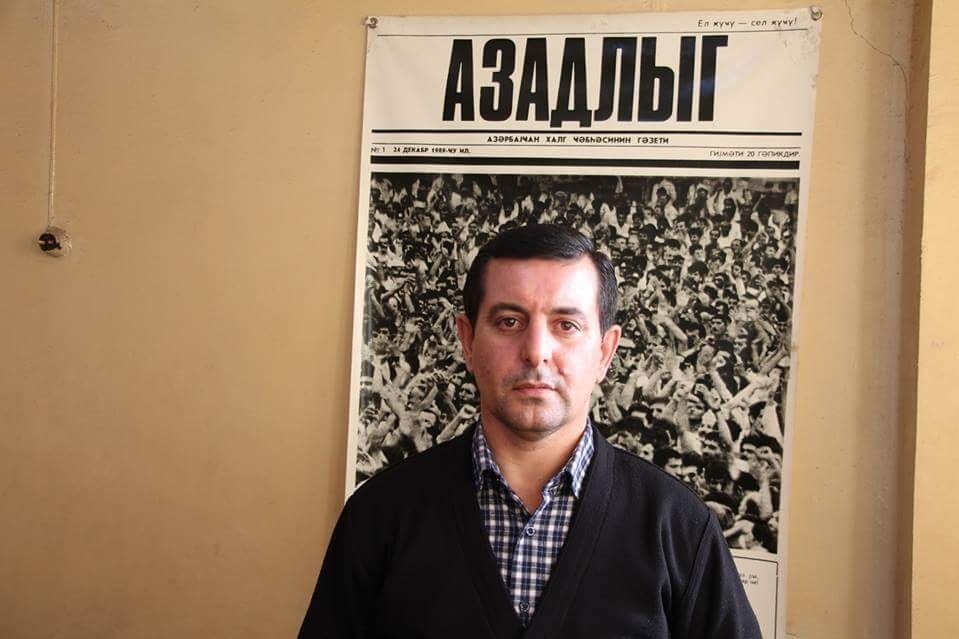He was also ordered to pay a penalty of 39,050 AZN (approximately 19,900 EUR), when sentenced on 24 July 2017.
“There seems to be no end to the charges the authorities will fabricate in their systematic aim to silence their critics and eradicate independent media. Azerbaijan has now charged journalists with incitement to suicide, defamation, smuggling, hooliganism, drug possession, illegal business, abuse of authority, embezzlement, illegal entrepreneurship, tax evasion and inciting religious hatred,” said Florian Irminger, HRHF Head of Advocacy.
Also, in attacks on media organisations themselves, the Azerbaijani authorities have blocked independent media websites critical of the government, such as Meydan TV – the winner of the Fritt Ord Free Media Award for 2017.
“We call for an end to this crackdown on independent media and multi-pronged attack on freedom of expression, and demand the release and full rehabilitation of the rights of those arrested,” Irminger continued.
According to The Institute for Reporters’ Freedom and Safety (IRFS), the prosecution presented Faig Amirli as the Azerbaijani deputy and imam of the Hizmet movement led by US-based Turkish cleric Fetullah Gulen, who has fallen out of favour and is accused by the Turkish authorities of attempting a coup. Yet the authorities reportedly “could neither during the investigation nor the trial provide any evidence of his guilt on any of the charges brought forward.”
Azadliq, the first independent newspaper in Azerbaijan, ceased its publication two weeks after Faig Amirli was arrested in August 2016.
Azerbaijan allegedly spread its attacks on journalists beyond its borders in May 2017, abducting journalist Afgan Mukhtarli in Tbilisi, Georgia. The European Parliament has condemned his abduction.
A group of plain-clothes officers attacked photojournalist Mehman Huseynov in Baku in January 2017. They blindfolded and gagged him with towels, forced a bag over his head and took him to the Nasimi district police station, where police used an electroshock weapon on his groin, and punched him, bloodying his nose. The next day, officers took him before a court that found him guilty of disobeying police orders and fined him 200 manat (US$120).
Huseynov went public about the abuses he suffered at the station. In response, the local police chief brought a criminal lawsuit against him for defamation. He was found guilty and sentenced to two years in prison.
The Baku Court of Grave Crimes convicted Khadja Ismayilova on politically motivated charges connected to her work as an investigative journalist in September 2015. Ismayilova linked the authorities’ targeting of her to her investigations into the business interests of President Ilham Aliyev’s family.
In January 2017, the Parliamentary Assembly of the Council of Europe “deplored the use of criminal laws against journalists and bloggers” in Azerbaijan.
Human rights situation in Azerbaijan
Despite the release of key civil society activists in 2016, new people have been arrested and the authorities have failed to change legislation that attempts to legally justify the detention of human rights defenders, journalists and activists, who can face imprisonment at any given time, on purely arbitrary accusations.
With its repeated waves of repression against civil society and media, Azerbaijan has managed to weaken what used to be in 2010 an active and professional although small community of people working independently to promote human rights in the country.
Read Azerbaijani and international partner organisations and HRHF’s March 2017 briefing note on Azerbaijan, prepared for the Human Rights Council. It addresses Azerbaijan’s targeted and systematic repression of human rights defenders and civil society, and crackdown on independent media and dissenting voices.





